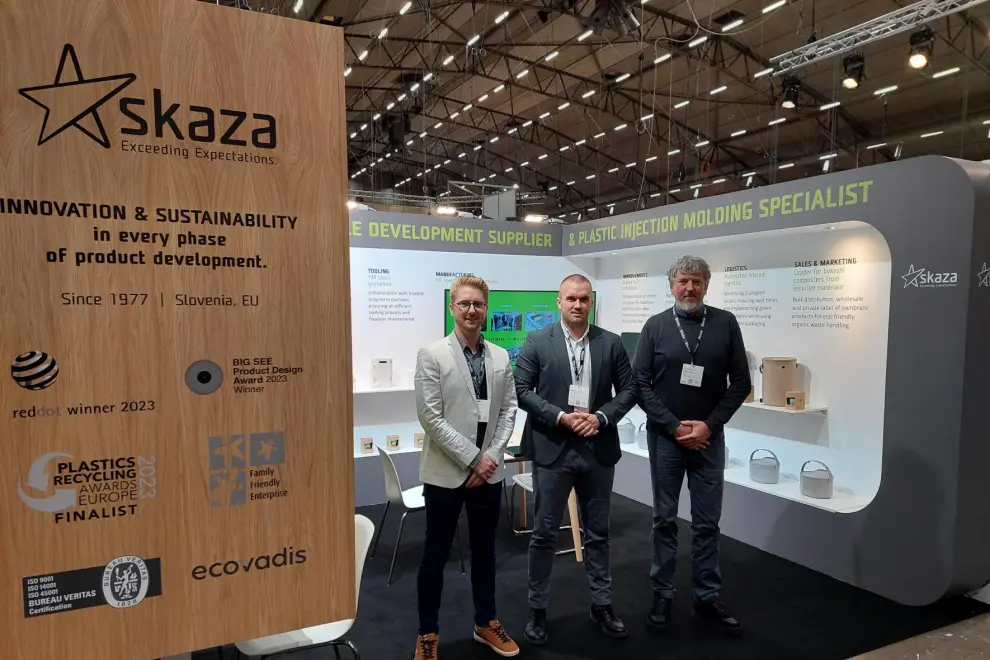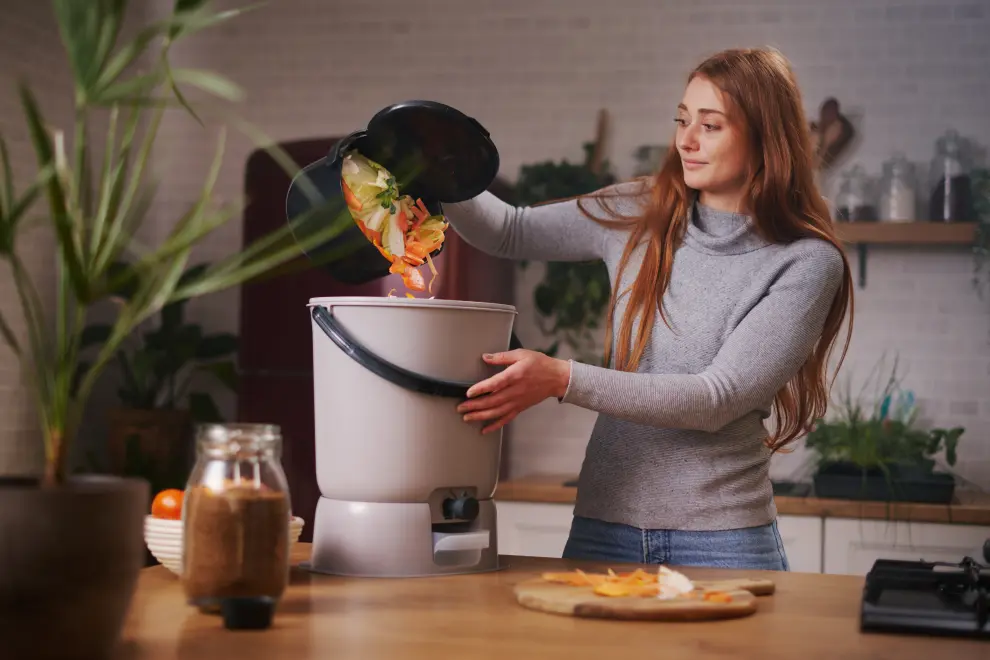Plastika Skaza, a sustainability pioneer
Plastika Skaza, a family business specialising in plastic products, is one of the sustainability pioneers in Slovenia, using recycled or bio-based plastics where possible. It exports 95% of its products abroad.
Based in Velenje in the northeast of the country, the company was launched in 1977 by Franc and Martina Skaza and is now in the hands of the second generation, Igor and Tanja Skaza.
Employing some 250 people, they supply 56 markets and are present in most Central European, Scandinavian and SE European countries.
Last year, one fifth of the material they use in their own brand products and those they supply to industry was recycled, according to Niko Medved, assistant director at the company.
The company's strategic goals include continued development of their own brand, creating their our own tool room, increasing added value, and consolidating their position as an R&D supplier.
Automation and digitalisation
"We are digitising and automating production, which also contributes to developing the competences of our employees by focusing on higher value-added areas of work," Medved says.
The company is focused on the electric and furniture industries, specialising in manufacturing of cabinets for smart electrical, gas and water meters, EV chargers and distribution panels, as well as dining seat shells, office chair seat backs, kitchen legs, waste bins pullouts, and home accessories.
Skaza's production facilities span 15,600 sq metres, equipped with 55 injection moulding machines ranging from 50 to 1,000 tons of clamping force that can handle various product sizes.

Niko Medved (centre), assistant director at Plastika Skaza, pictured with two other company officials. Photo: Plastnika Skaza
They specialise in multi-component injection moulding to make products of complex shapes and features, using machine vision to precisely control the quality of the finished products.
They have been undergoing digital transformation by applying autonomous transport lines, collaborative robots and a digital twin, a virtual copy of the production environment that allows them to simulate production, process time, machine and staff occupancy.
Turning waste into a resource
Their own brand portfolio includes solutions for sustainable management of organic waste, such as organic waste bins and composters, and durable reusable and recyclable items such as cups, bowls, cutlery, and picnic sets.
The French municipality of Saint-Omer has subsidised the purchase of the Bokashi Organko composters for its residents, who then bring back the fermented waste that can be used as compost or to fertilise public green spaces.
"This initiative has fostered a close-knit community that breathes new life into every piece of discarded food and is committed to a sustainable, circular solution for organic waste," Medved says.

The Bokashi Organko composter. Photo: Plastika Skaza
Their products have earned them Red Dot and Big See Deign Awards.
After years of growth, the company posted €39.2 million in net sales revenue in 2023, which is 9% less than in 2022, while net profit plunged to €62,000.
The company is planning to be much more profitable this year, focusing on implementing a new strategy in which the first step will be to generate €50 million in annual revenue.



